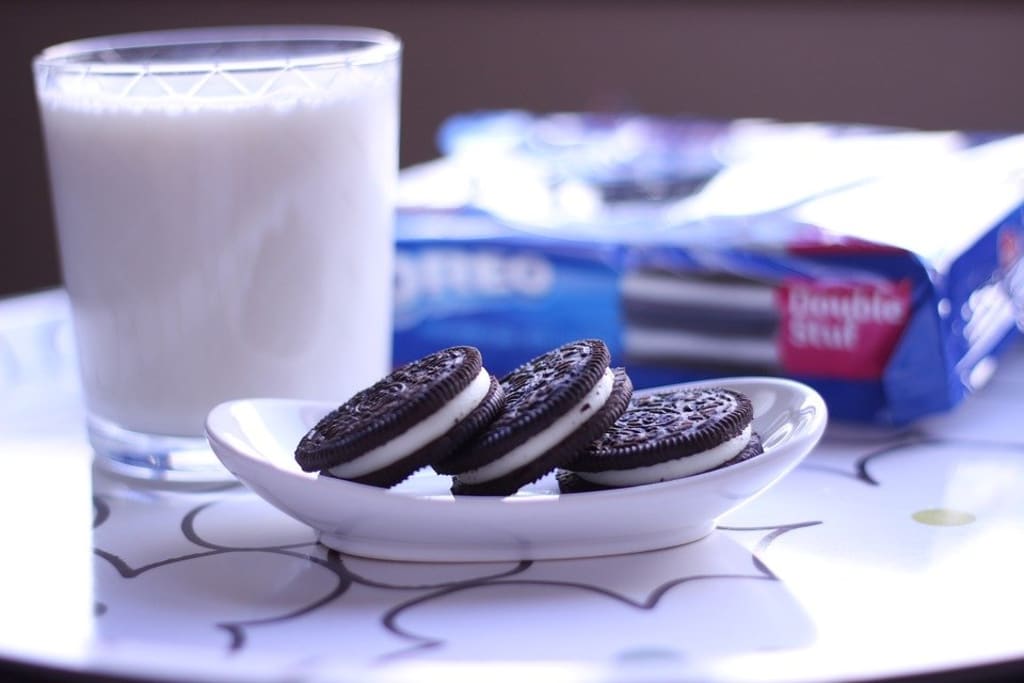The History of the Oreo
How one of the most popular cookies in the world came to be

In 1882, entrepreneur Jacob Loose bought a company that would eventually be known as Sunshine Biscuits. The company specialized in biscuits and candies and in 1908, it released a biscuit sandwich called Hydrox. The name was intended to remind consumers of hydrogen and oxygen and to be reminiscent of the sunlight of its company’s name. While the floral design of the cookie was revolutionary for its time, the name, unfortunately, reminded people of hydrogen peroxide instead of hydrogen and oxygen. It didn’t help that the coincidentally-named Hydrox Chemical Company, which sold hydrogen peroxide, was caught in a lawsuit because the term “hydrox” was used for coolers, sodas, and even ice cream brands. Meanwhile, in 1898, several baking companies merged to form the National Biscuit Company, which would later come to be known as simply Nabisco. In 1912, four years after the original Hydrox was released, Nabisco debuted their version of the Hydrox, which they named the Oreo. Food scientist Sam Porcello, an employee at Nabisco, developed the chocolate-covered and the white-chocolate covered Oreo, along with inventing the “stuf” in the Double-Stuf Oreo. In fact, he held five patents related to Oreos before his death in 2012 at the age of 76 and was so involved in the development of the cookie that people gave him the moniker “Mr. Oreo”. Around this time, Nabisco also debuted two other biscuits, the Goose and the Veronese, both of which have been lost to history.
While the Oreo ended up dominating the market, Hydrox still had its own advantage. While Oreos required an expensive procedure to remove the lard from their cream, Hydrox was already kosher. However, Oreos still dominated, and when Keebler acquired Sunshine Foods brands in the ’90s, many people thought that the Hydrox was the ripoff. The name still didn’t appeal to many people, either- in 1998, Hydrox made $16 million while Oreos made $374 million, not to mention the fact that that year, Oreo itself went kosher for the first time. Keebler, realizing that the name was turning people away, attempted to rename the cookies Droxies, but it wasn’t enough. In 2001, Kellogg’s acquired the company, and by 2003, Hydrox was taken off the market altogether. However, in 2008, customers started complaining about the cookie’s removal, so the cookie was briefly brought back. In 2015, Ellia Kassoff was able to bring back Hydro for his brand Leaf Brands, which was itself a dormant company that he had revived. Since Kellogg’s wasn’t interested in renewing the trademark, Kassoff was able to cancel and revive the trademark, revamp the recipe, and put the cookie back on the market. It currently contains real sugar, has no GMOs, and is still kosher. Meanwhile, of course, Oreos are still the dominant cookie in the market- over 450 billion Oreos have been sold since their debut, and the brand has developed a large branch of Oreo-themed products, including holiday-themed cookies, snack crust, pie crust, and even the Big Stuf Oreo, which contained 316 calories per cookie. This cookie was eventually discontinued in 1991, but the Oreo brand continues to thrive to this day.
If you want to read a more intricately written and structured version of this article, check out the original article from Atlas Obscura that this piece was based on. It's a fascinating read behind the making of an invention that most people probably never wondered about, among many fascinating reads on the website. The article was apparently originally written for a newsletter on letter known history titled Tedium, the official website of which is also linked at the bottom of the Atlas Obscura article.





Comments
There are no comments for this story
Be the first to respond and start the conversation.